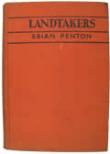 712440225502785466.jpg
712440225502785466.jpg
 712440225502785466.jpg
712440225502785466.jpg
'First published in 1934, this novel tells the story of a British man who migrates to Australia in 1842 and is transformed by his colonial experiences.'
'In a famous study, The Australian Legend, first published in 1958, Russel Ward argued that the bush legend was the central foundation story that explained the evolution of Australian character and nationalism. Ward's version of the legend explained how from convict times onwards itinerant bush workers had created and adhered to an ethos that encompassed mateship, anti-authoritarianism (including hostility to Britain and its empire), egalitarianism, and adaptability. Although the bush legend allegedly originated with and was nurtured by a bush proletariat, Ward proposed that this regional ethos became a national creed at the turn of the 20th century, transmitted from rural to urban Australia through conduits that included the trade union movement, periodicals like The Bulletin, and the work of writers like Lawson and Paterson. (Publication abstract)
'The Australian branch of the modern Irish diaspora has several apparently distinctive features, when compared with the British, American and Canadian branches. As explained by the historian Oliver MacDonagh, these include, firstly, its large size in relation to the total population – over 30% in the eastern mainland states, and sustained at that level down to the First World War and beyond; secondly, its unusually uniform distribution around the country, geographically, socially and even occupationally, with relatively strong Irish presences in all states, and in all classes and occupations (except the higher financial professions), but notably the law, politics, journalism and teaching; and thirdly their unique position within the diaspora,as a founding people, arriving at the beginning of European settlement (mainly as convicts and soldiers), and thereby staking a claim, and an interest, in the shape and destiny of the nation as a whole.' (Author's introduction)